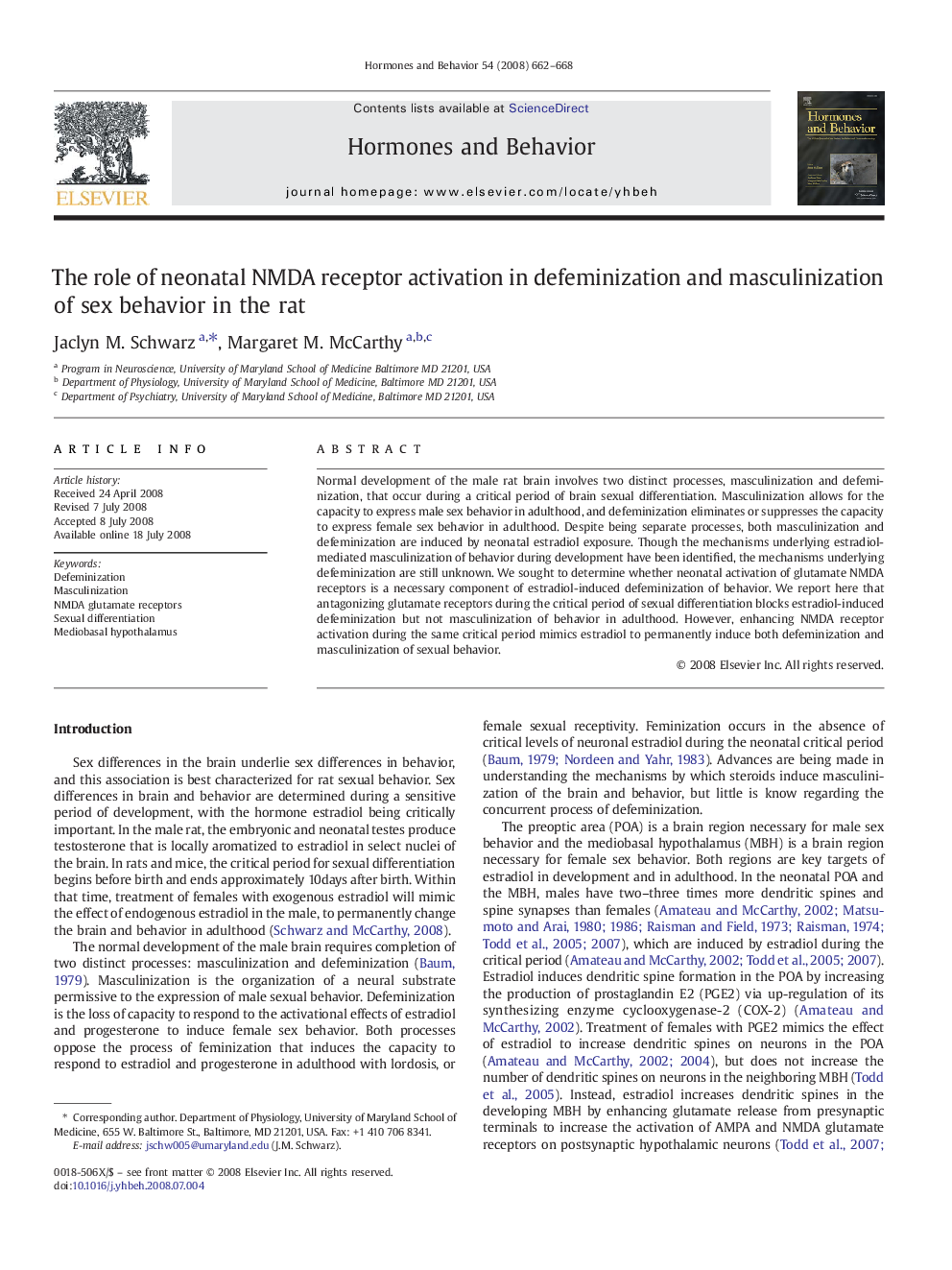| Article ID | Journal | Published Year | Pages | File Type |
|---|---|---|---|---|
| 322860 | Hormones and Behavior | 2008 | 7 Pages |
Normal development of the male rat brain involves two distinct processes, masculinization and defeminization, that occur during a critical period of brain sexual differentiation. Masculinization allows for the capacity to express male sex behavior in adulthood, and defeminization eliminates or suppresses the capacity to express female sex behavior in adulthood. Despite being separate processes, both masculinization and defeminization are induced by neonatal estradiol exposure. Though the mechanisms underlying estradiol-mediated masculinization of behavior during development have been identified, the mechanisms underlying defeminization are still unknown. We sought to determine whether neonatal activation of glutamate NMDA receptors is a necessary component of estradiol-induced defeminization of behavior. We report here that antagonizing glutamate receptors during the critical period of sexual differentiation blocks estradiol-induced defeminization but not masculinization of behavior in adulthood. However, enhancing NMDA receptor activation during the same critical period mimics estradiol to permanently induce both defeminization and masculinization of sexual behavior.
